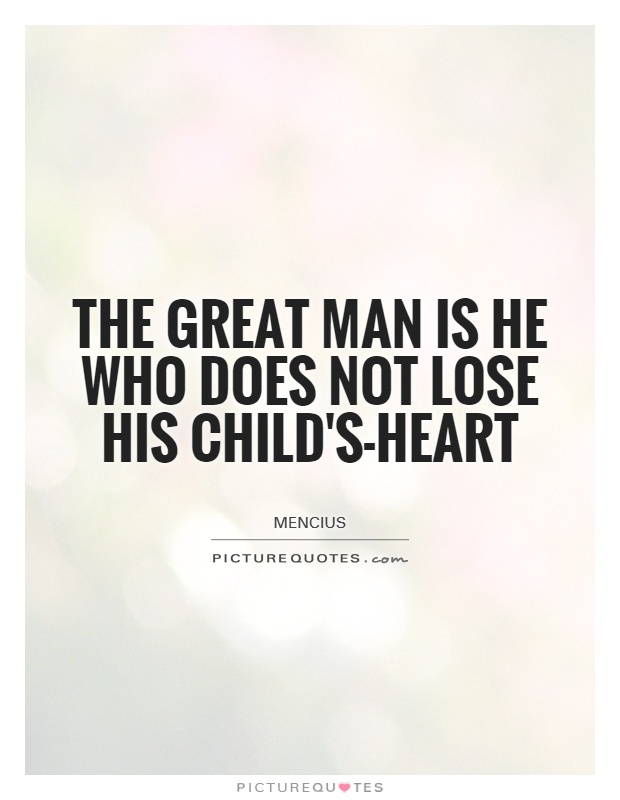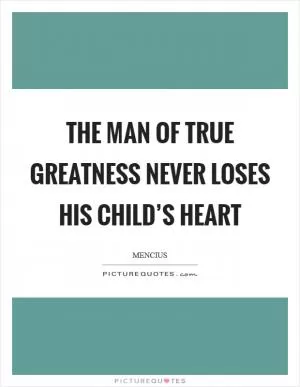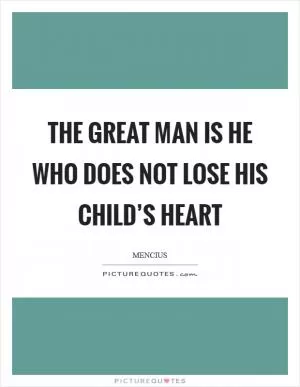The great man is he who does not lose his child's-heart

The great man is he who does not lose his child's-heart
In the context of Mencius, a Chinese philosopher who lived during the Warring States period, the idea of "The great man is he who does not lose his child's heart" holds significant importance. Mencius believed that human nature is inherently good, and that individuals have the potential to cultivate their virtues and become great by following their innate moral compass.The concept of not losing one's child's heart refers to maintaining a sense of innocence, purity, and sincerity in one's actions and intentions. Children are often seen as pure and untainted by the complexities of the world, and Mencius believed that adults should strive to retain this childlike innocence in order to cultivate their virtues and become great individuals.
Mencius argued that the key to becoming a great man lies in nurturing and developing one's innate moral virtues, such as compassion, righteousness, and benevolence. By following one's heart and acting in accordance with one's natural inclinations, individuals can achieve greatness and become virtuous leaders who inspire others to do the same.












 Friendship Quotes
Friendship Quotes Love Quotes
Love Quotes Life Quotes
Life Quotes Funny Quotes
Funny Quotes Motivational Quotes
Motivational Quotes Inspirational Quotes
Inspirational Quotes